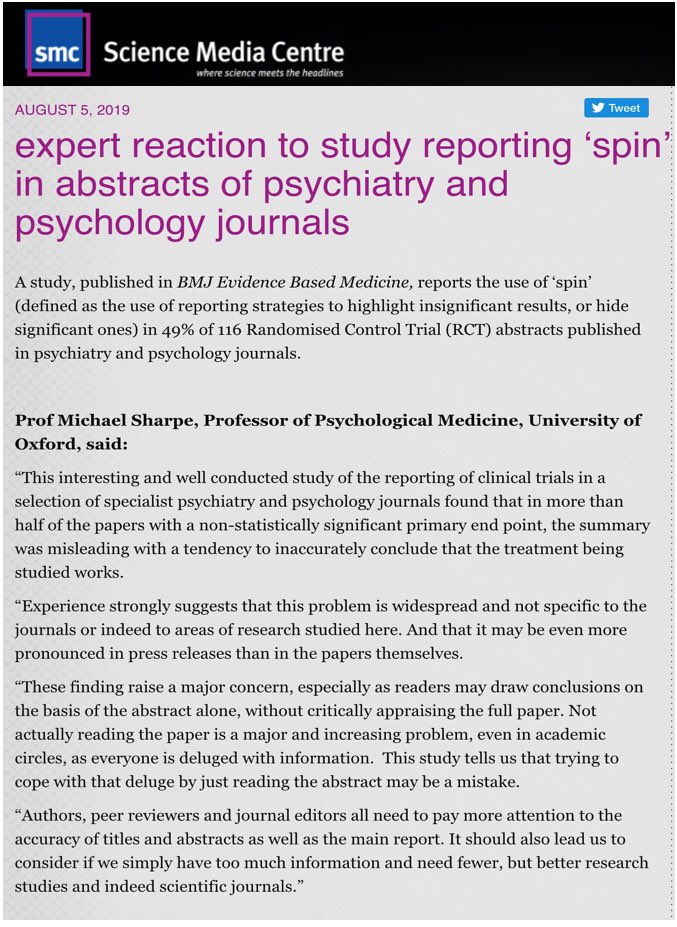Introduction
Randomised controlled trials (RCTs) serve as the gold standard in psychiatry. Given the importance of such trials to clinical practice, it is imperative that results be reported objectively.
Researchers are encouraged to conduct studies and report findings according to the highest ethical standards.
1 2 This standard means reporting results completely, in accordance with a protocol that outlines primary and secondary endpoints and prespecified subgroups and statistical analyses. However, authors are free to choose how to report or interpret study results. In an abstract, authors may include only the results they want to highlight or the conclusions they wish to draw. These results and conclusions, however, may not accurately summarise the findings of the study. When such a misrepresentation of study results occurs, there is said to be spin. Spin has been defined as, ‘the use of specific reporting strategies, from whatever motive, to highlight that the experimental treatment is beneficial, despite a statistically nonsignificant difference for the primary outcome, or to distract the reader from statistically nonsignificant results’.
3 Many practices contribute to spin, including the selective reporting of outcomes,
4 5 p-hacking,
6 7 inappropriate application of statistical measures like relative risk
8 and manipulation of figures or graphs.
9 10
Spin in abstracts has recently been discussed in a systematic review.
11 Evidence suggests that abstract information alone is capable of changing a majority of clinicians’ care decisions.
12 For example, when unadjusted analyses or secondary outcomes are given undue attention in abstracts, readers’ overall appraisal of the contents of a manuscript is altered.
13 Additionally, a previous systematic review showed there to be a higher rate of favourable conclusions in industry-funded studies compared with other sponsorships.
14
We have evaluated the prevalence of spin in abstracts of RCTs with nonsignificant primary endpoints in the psychology and psychiatry literature and have explored the association between spin and industry funding.

